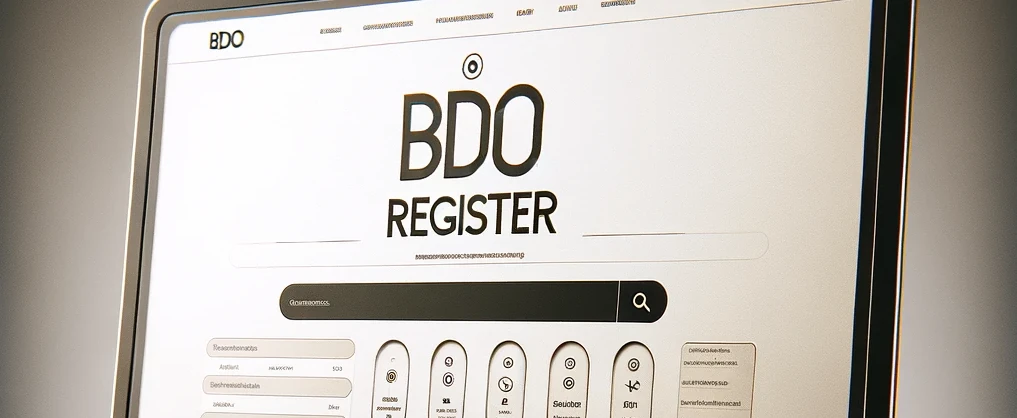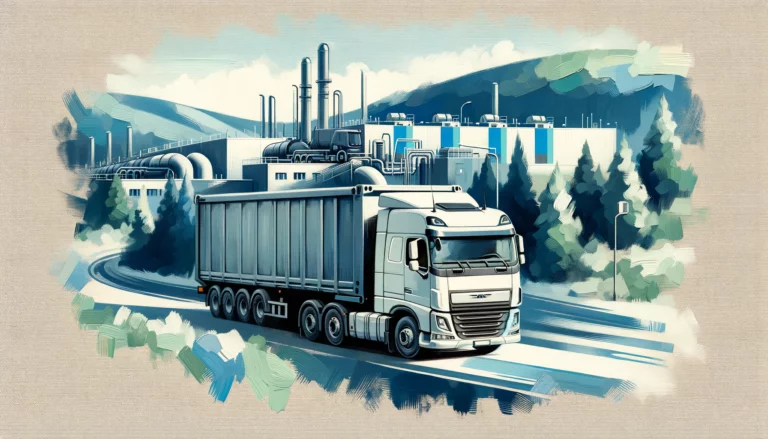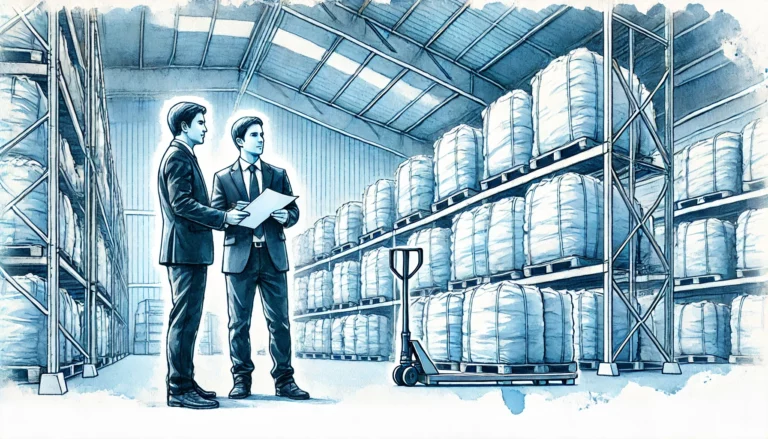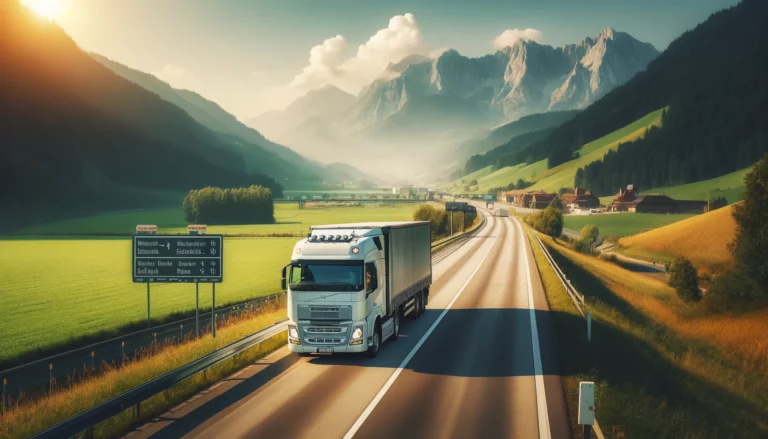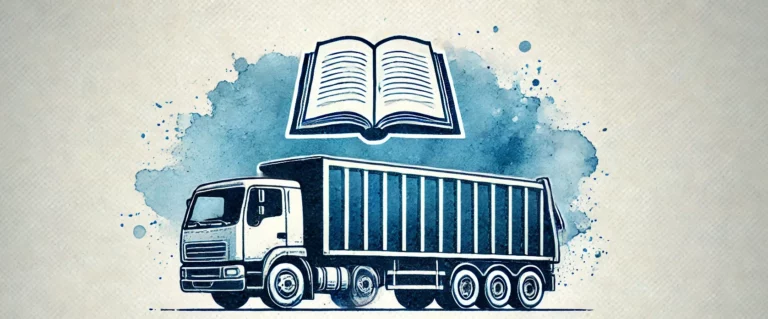Polish BDO Register and its role in waste management
This week we’d like to shed some light on the Polish BDO Register. It’s a crucial tool for all waste management companies, including the ones dealing in waste transport. It was created in an effort to help the national and international waste industry. In this article we take a closer look at it and try to ascertain if it fulfilled its designated role.
Poland stands out in the global push towards environmental sustainability, having launched the Database on Products and Packaging and on Waste Management (also known as the Polish BDO Register) on January 24, 2018. This move, driven by an update to the Environmental Protection Law, highlights Poland’s active role in meeting European Union waste management directives. The BDO system allows for the tracking of waste from creation to recycling or disposal, increasing transparency, combating illegal dumping, and improving waste management efficiency across the country.
By introducing the BDO system, Poland took a significant step forward, using technology to drive environmental stewardship. Drawing on Europe’s best practices, especially Germany’s effective waste management model, the BDO system places Poland at the forefront of sustainable waste management. It sets strict standards for tracking and handling waste, ensuring compliance with EU guidelines and promoting a greener, more sustainable future.
Do you want to know more about registration in Polish BDO Register? Contact us:
office@wastetransportsolutions.eu
Understanding the Polish BDO Register
Purpose of the BDO
Poland launched the BDO register with a clear goal. It wanted a central place for all waste management data. This move boosts government oversight. It lets officials track waste from start to end. The main goal is clear. It aims to make waste handling open, stop illegal dumping, and improve efficiency.
How the Register operates
Registration process
Entities involved in waste management must register in the BDO system. They need to provide detailed info about their operations. This includes their business type and the waste categories they handle. The aim is to account for all waste management activities. This promotes organized and efficient waste handling.
Required documentation
Registering requires a range of documents. Entities need to show their legal status and their waste management plans. They also must prove they meet environmental standards. This thorough documentation ensures only qualified entities join Poland’s waste management system.
Updating and maintaining information
Keeping BDO database entries up to date is essential. Registrants must report any changes in their operations or waste practices. This keeps the database accurate and reflective of the real situation.
Polish BDO Register – obligations of transport companies
Understanding legal requirements
Transport companies that specialize in the movement of waste materials occupy a pivotal position within the waste management value chain. The legal requirement for these companies to register in the BDO register is not merely a bureaucratic formality but a foundational aspect of their operational legitimacy. This segment delves into the legal framework that mandates such registration, highlighting its importance in the broader context of environmental sustainability.
Penalties for non-compliance
Non-compliance with the BDO system’s registration requirements can lead to significant penalties. We were informed of a foreign company specializing in the transport of recyclable materials, operated in Poland without BDO registration. Despite their contribution to the recycling chain, their oversight in not registering led to substantial repercussions. The Polish environmental authorities discovered the lapse during a routine audit and imposed a fine of PLN 350,000 (approximately EUR 80,000). This penalty served as a stark reminder of the importance of compliance and the serious consequences of oversight.
The benefits of registration
While adherence to regulatory requirements is a primary motivator, the benefits of BDO registration extend far beyond compliance. Registered companies enjoy streamlined business operations, enhanced credibility with clients, and a fortified position in the market. Moreover, registration aligns companies with Poland’s national environmental objectives, contributing to a collective effort toward sustainability.
Comparative insights: the Polish vs. German approach

Poland – important step in the right direction
Poland’s BDO system represents a significant step towards enhancing the transparency and efficiency of waste management. Established in 2018, this centralized database mandates that all entities involved in waste management register and report their activities, aiming to streamline operations and clamp down on illegal dumping. The system’s emphasis on detailed reporting and accountability mirrors a broader European movement towards sustainable waste handling. However, unlike Germany, Poland’s journey to refine its waste management practices through technology and centralized data is relatively recent. The BDO system’s rollout marks a pivotal shift towards embracing EU directives on waste management, showcasing Poland’s commitment to environmental stewardship.
Germany – embodiment of “lead by example” maxim
Germany, on the other hand, has long been recognized as a leader in waste management in Europe. Its approach is characterized by its comprehensive waste separation regulations, extended producer responsibility, and the Green Dot system, which encourages manufacturers and consumers to contribute to the cost of recycling. Germany’s waste management framework is robust, supported by stringent legislation, public awareness campaigns, and a culture that values environmental sustainability. This multifaceted approach has allowed Germany to achieve one of the highest recycling rates in the world, setting a benchmark for other nations.
Comparison
Comparing Poland’s BDO system with Germany’s established waste management practices highlights both the challenges and opportunities in adopting and adapting best practices within different national contexts. Poland’s efforts to centralize waste management data and enforce registration and reporting requirements are commendable steps towards transparency and efficiency. However, Germany’s success demonstrates the importance of a holistic approach that includes public participation, legislative support, and a strong recycling culture. As Poland continues to develop its BDO system, there is potential for cross-learning and collaboration, leveraging Germany’s experience to enhance its waste management strategies and contribute to a more sustainable future.
Operational challenges and solutions
Navigating the Polish BDO Register presents a unique set of challenges. Especially for foreign companies looking to participate in Poland’s waste management sector. A significant hurdle is the language barrier, as the BDO system’s platform is available exclusively in Polish.
This limitation poses a daunting obstacle for non-Polish speaking entities eager to register as waste transporters. Without fluency in Polish, these companies find themselves at a disadvantage, struggling to comprehend the registration requirements and navigate the bureaucratic process. This issue underscores a broader challenge of accessibility, hindering the system’s potential to attract international businesses committed to sustainable waste management practices.
Recognizing the difficulties posed by the language barrier, Waste Transport Solutions provides end-to-end support in navigating the BDO registration process. From translating and understanding the requirements to compiling the necessary documentation and facilitating communication with Polish authorities, they ensure a smooth and efficient registration process.
As Poland continues to refine and evolve its waste management practices, the BDO system will undoubtedly play a central role. Emerging trends, particularly the integration of technology, promise to enhance the system’s effectiveness, making waste management more efficient and environmentally friendly. This forward-looking perspective underscores Poland’s commitment to innovation and sustainability in waste management.
_____________________________
You may also be interested in:
10 things to consider when transporting waste to the Netherlands
Waste management in Germany – a comprehensive analysis
Need a waste carrier licence in England? Here’s why it’s essential

